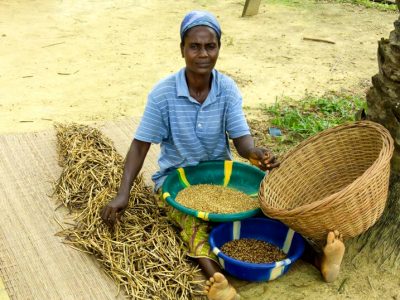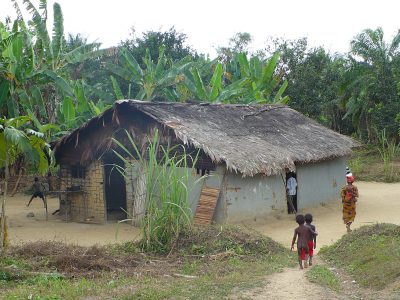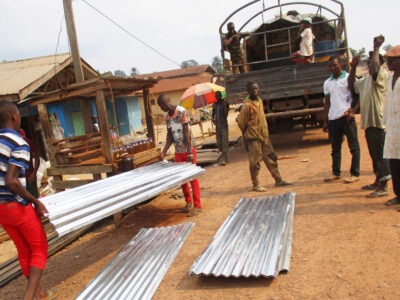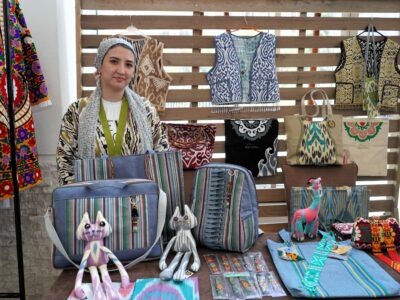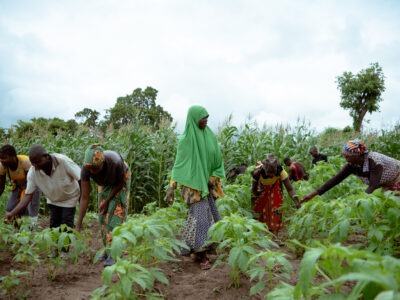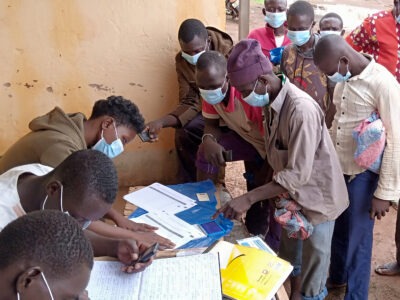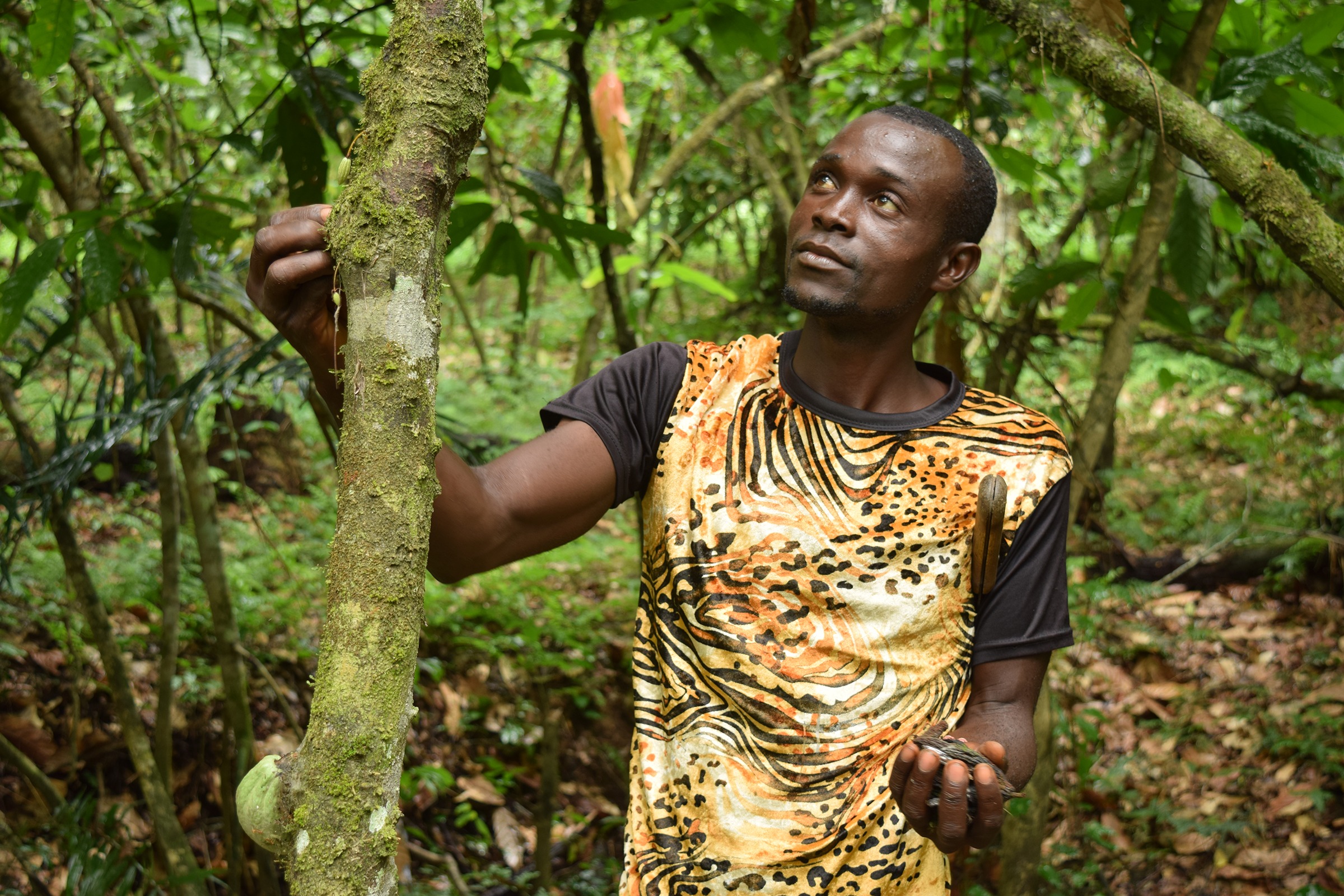
The world’s forests are a key factor in sustainable development. They provide food, water, and medicine. They help stabilize the climate and support much of the world’s biodiversity. Human survival is inextricably tied to forest ecosystems. Yet, just 15 percent of global forests remain intact today.
Proper forest management is critical to preserving the world’s biodiversity. By partnering with governments and communities, ACDI/VOCA programs in Liberia and throughout West and Central Africa are helping create institutions and policies to manage forests transparently and equitably. These programs are promoting climate-smart agriculture to mitigate forest impacts, while also improving local incomes.
Supporting Forest-Based Institutions in Liberia
In Liberia, the USAID-funded Forest Incomes for Environmental Sustainability (FIFES) Activity, implemented by ACDI/VOCA, is working to conserve the biodiversity of 11 community forests in Grand Bassa and Nimba counties. This includes helping communities secure land rights, establish forest-governing bodies, and create viable businesses.
In the last five years, the FIFES Activity has formally linked 132 enterprise groups to Community Forest Management Bodies, which have taught them sustainable farming techniques and provided them with access to microloans and markets to sell their products.
To continue their stewardship of Liberia’s forests, the FIFES Activity is ensuring that these enterprises earn revenue from both forest- and non-forest-related products.
10 Years of Protecting Forests and Enterprises in West & Central Africa
In addition to Liberia, ACDI/VOCA has been protected forests and enterprises in West and Central Africa for more than a decade. This has included a program in Sierra Leone that brought about a landmark signing of forest co-management agreements between the government and the Kambui North and Wara Wara Forest Preserves.
It has also included ACDI/VOCA’s contribution to assessments in the Democratic Republic of Congo on private-sector approaches to forest conservation as well as technical oversight on USAID studies for the USAID-funded Productive Landscapes (ProLand) Project.
A major source of tension between protecting forests and growing economies is the cocoa sector. As the global demand for cocoa grows, expanding its cultivation threatens forests. Through the Feed the Future Partnership for Climate Smart Cocoa, led by the World Cocoa Foundation, ACDI/VOCA provided climate-smart solutions to mitigate cocoa’s environmental impact in Ghana, Cote d’Ivoire, and Liberia.
Liberia has been home to seven USAID and USDA forestry programs supported by ACDI/VOCA.
Our forestry efforts in Liberia began in 2008 with the USDA-funded Livelihood Improvement for Farming Enterprises (LIFE) Projects I, II, and III, which continued through 2016. These projects provided local organizations with grants to lead 186 Farmer Field Schools for 10,000 cocoa producers.
Two other ACDI/VOCA-led programs, funded by USDA and USAID from 2008 to 2012, launched community forestry in Liberia and turned it into a nationwide initiative. These programs partnered with Liberia’s Forestry Development Authority to improve community land rights and co-signed forest management agreements between the Liberian government and five counties.
Following those programs, ACDI/VOCA implemented the USAID-funded People, Rules and Organizations Supporting the Protection of Ecosystem Resources (PROSPER) Project in Liberia. PROSPER established 30 crop diversification groups and developed an Agriculture and Community Forest Enterprise Management Manual. The project also increased 329 household incomes through sustainable activities.
Over the last decade, ACDI/VOCA programs in Liberia and elsewhere have established institutions and promoted sustainable agriculture to protect forests and biodiversity. As a thought leader in market systems development, ACDI/VOCA has also supported market solutions for forest-based enterprises. This has helped forest communities experience more economic resilience and rely less on precious natural resources.
Learn more about our work in Liberia.

